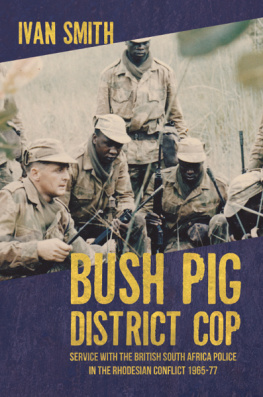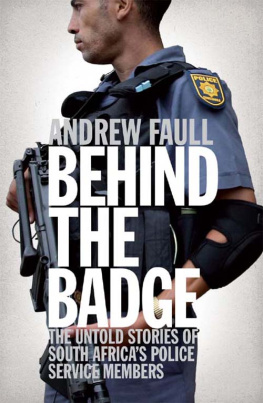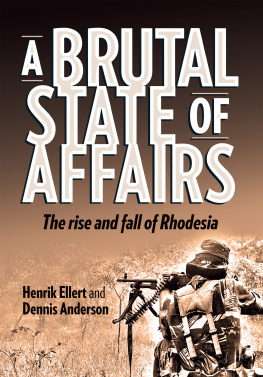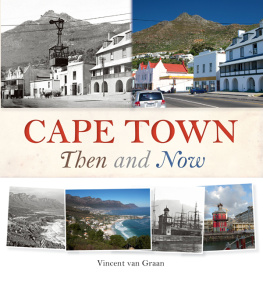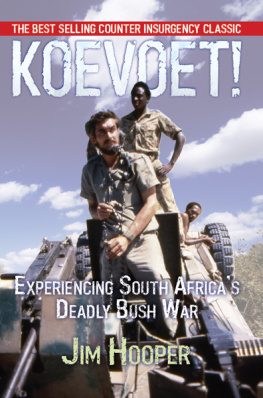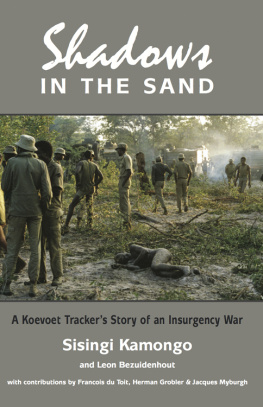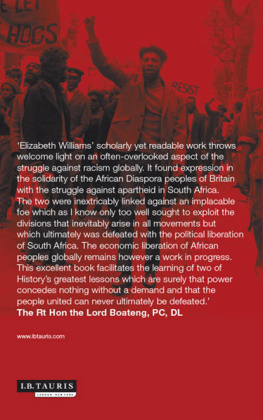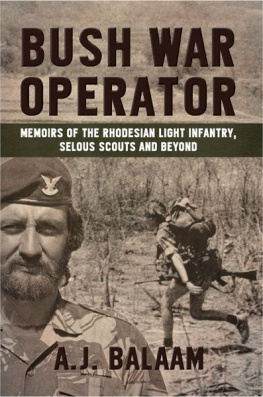This is the story of one mans service in the British South Africa Police of Rhodesia during his service of nearly fifteen years (19651977). In many ways it forms a sequel to the authors book Mad Dog Killers.
The struggle to keep Rhodesia out of black nationalist hands started in late 1964 and ended with the Mugabe regime in 1982. It is a story of a policeman engaged in that war as a member of the paramilitary BSAP Support unit, the Police Anti-Terrorist Unit and as an ordinary member of the force that had always been designated the countrys first line of defence. Most of the service was on remote, rural district stations, often on the front line.
The account tells of one mans learning to be a policeman and later a police public prosecutor and also about the eccentricities of some of the circuit magistrates. A policeman has a lot to learn about life. In the BSA Police he was expected to jump in at the deep end from the start.
It is also the story of the strange struggle by Rhodesian-born policemen in a force where the majority were English-born, at a time when Rhodesia was in rebellion against Britain. The authors senior officers, though fiercely loyal to the force, were British and required to join the rebellion. It tells of his resentment at the lack of drive by senior officers in the fight against terrorist atrocities.
There is additional insight into the utopian life in Rhodesia, especially in rural areas, when it was still possible to hunt buck for the police mess rations, where there was no electricity or other modern amenities, and where the single quarters were in ancient buildings enclosed by a wraparound gauzed-in veranda a life now gone forever. It is also a story of a young man who grew up in Salisbury and of his sexual excesses and sadness.
The British Queen Mother was patron of the force all her life and was very proud of her association with it.
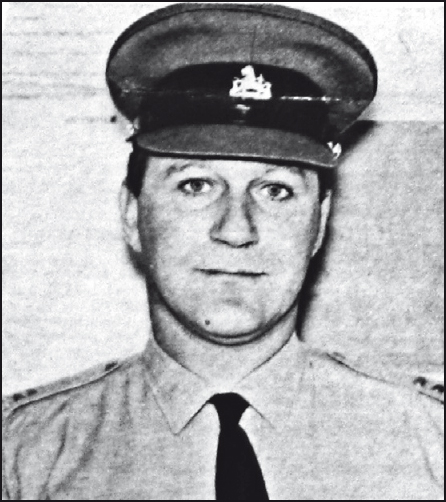
Ivan Smith was born 1941 in Fort Victoria, Rhodesia. He grew up on a farm before doing his national service after leaving school in 1958.
After some cowboy and mining work, he spent two years in London and Copenhagen. In 1964 he signed up for a six-month contract as a mercenary in the Congo. He joined the British South Africa Police in 1965 and served fourteen years in the paramilitary Support Unit and the Police Anti-Terrorist Unit during the protracted Rhodesian bush war. He emigrated to South Africa in 1984, where he worked in the security department at the University of Cape Town for sixteen years.
A lover of hunting and fishing, he has written for various outdoor magazines for over forty years. He lives in the small village of Joubertina in the Western Cape of South Africa.
Co-published in 2014 by:
Helion & Company Limited
26 Willow Road
Solihull
West Midlands
B91 1UE
England
Tel. 0121 705 3393
Fax 0121 711 4075
email:
website: www.helion.co.uk
Twitter: @helionbooks
Visit our blog http://blog.helion.co.uk
and
GG Books UK
Rugby
Warwickshire
Tel. 07921 709307
Website: www.30degreessouth.co.uk
Designed and typeset by Farr out Publications, Wokingham, Berkshire
Cover designed by Euan Carter, Leicester ()
Printed by Lightning Source, Milton Keynes, Buckinghamshire
Text Ivan Smith 2014
Illustrations as individually credited
Cover: Bruce Allen and C Troop Support Unit, Makuti. ( Bruce Allen)
ISBN: 978-1-909982-29-1
DIGITAL ISBN: 978-1-910294-89-5
British Library Cataloguing-in-Publication Data
A catalogue record for this book is available from the British Library
All rights reserved. No part of this publication may be reproduced, stored, manipulated in any
retrieval system, or transmitted in any mechanical, electronic form or by any other means,
without the prior written authority of the publishers, except for short extracts in media reviews.
Any person who engages in any unauthorized activity in relation to this publication shall be liable
to criminal prosecution and claims for civil and criminal damages.
For details of other military history titles published by Helion & Company Limited contact the
above address, or visit our website: http://www.helion.co.uk
We always welcome receiving book proposals from prospective authors working in military
history.
Contents
List of photographs
List of acronyms
APA | African Purchase Area |
BSAP | British South Africa Police |
DC | district commissioner |
i/c | in command |
JOC | Joint Operations Command |
KAR | Kings African Rifles |
OC | officer commanding |
P/O | patrol officer |
PATU | Police Anti-Terrorist Unit |
S/O | section officer |
SAP | South African Police |
SB | Special Branch |
TTL | Tribal Trust Land |
VAT | Voluntary Anti-Terrorist |
Map
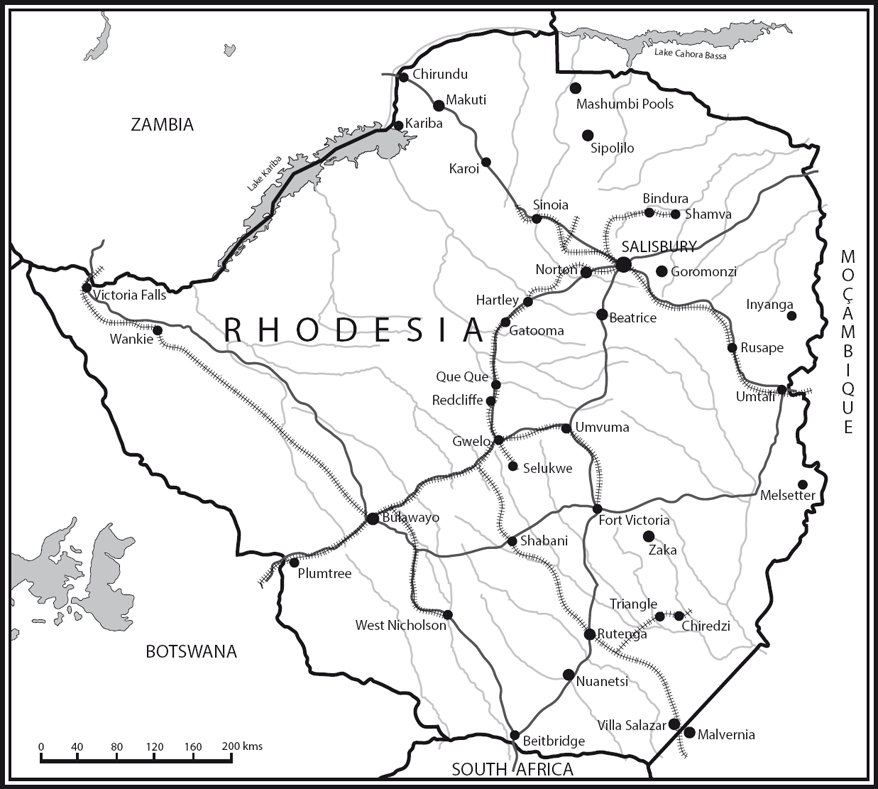
Preface
T here are many books about the British South Africa Police, and anyone interested in the subject will find long lists of them on the BSAP Regimental Association website. The books cover all aspects of service with the force. This book is not an attempt to cover ground already covered.
This is my personal story of service with the force at a crucial time in the story of Rhodesia. That service spanned the years that are usually the most productive in a mans life. They were also the years that were crucial to the existence of Rhodesia.
A police recruit learns a lot in a short time. Challenging learning is necessary if the recruit is to call himself a policeman; certainly a district service policeman with a sense of pride. They were years filled with joy and sorrow. The young men of Rhodesia lived very full lives during that long fight to keep the country out of black hands. Joy and sadness cannot exist one without the other; we had both in abundance. Rhodesia, as a beautiful, extraordinary country, will never have an equal; those of us born there hold that true in our hearts now that Rhodesia is no more.
Very few of the men who served with me have been fully identified. That is a choice I have made. I believe their names are not necessary in the context of the book. Many names have slipped into the mists of time anyway.
Those who served in the BSAP become fewer with each passing year, yet the pride in that service will endure to the last living man.
I have used place names as they were before the changes that occurred with the advent of Zimbabwe. I do not know many of the new names.
Joubertina, Eastern Cape
November, 2012
The match is made
I t is almost impossible to discover where something originated. Human beings carry millions of years worth of genetic material in their makeup and the start of human evolution goes back to the original big bang. All human beings experience the world through five senses. Those senses report only what has taken place; no matter how fast the senses react to stimuli, all that a persons brain can record is what happened in the past, even if that past is but a millisecond back. It is the same for events that affect the lives of men. All have their origin in past: a past that is sometimes close, sometimes far. All human beings are a product of the environment they find themselves in and over a lifetime modify their behaviour to adapt to the environment, genetically passing on that adaptation to their descendants.
Next page
